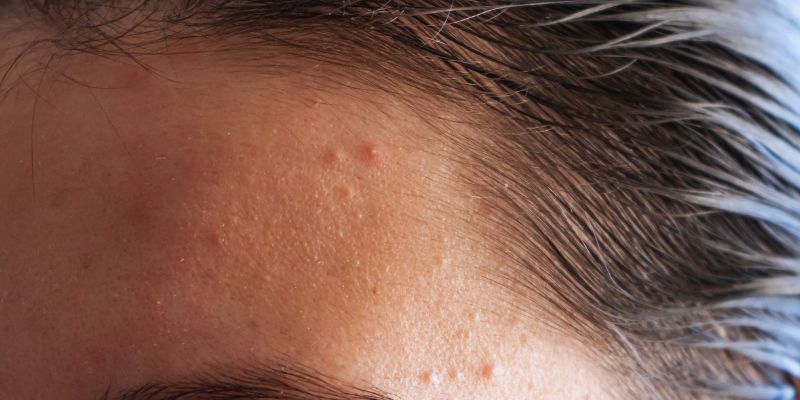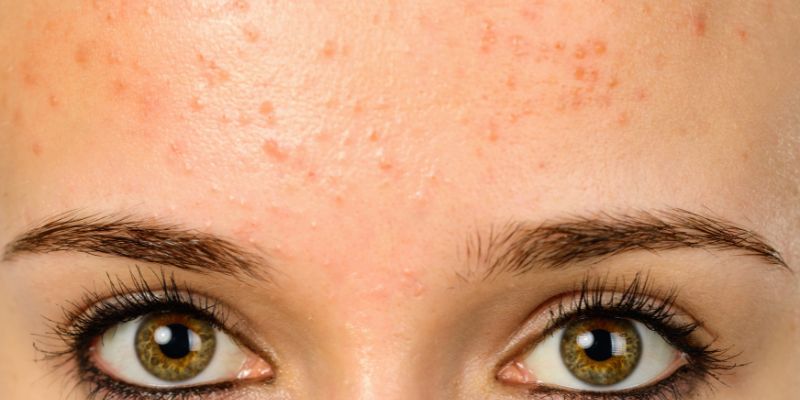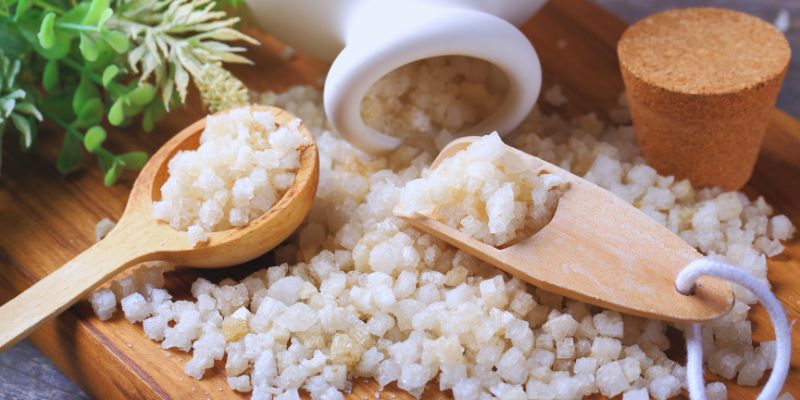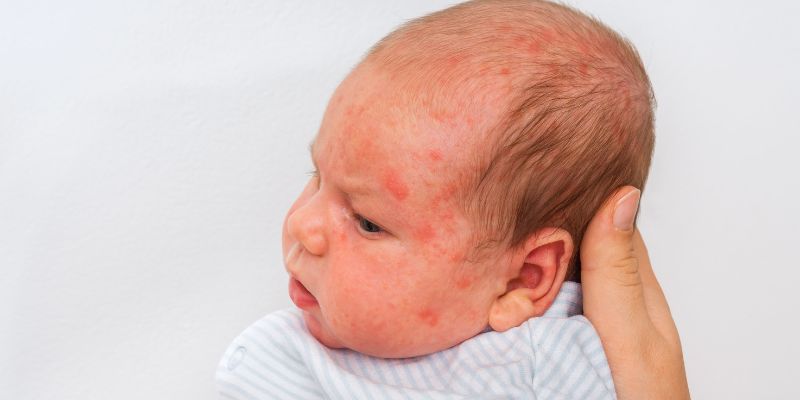What Causes Forehead Acne and How to Treat It: A Complete Understanding
Advertisement
Many people deal with the irritating and prevalent skin issue known as forehead acne at some point. Your confidence may suffer greatly whether it shows up as cystic lumps, blackheads, or tiny pimples. The first step toward controlling and avoiding forehead acne is knowing its causes. Several elements lead to acne, from hormonal changes and bad skincare practices to stress and food.
The good news is that forehead acne can be under control and decreased with the correct treatment routine. We'll explore the primary causes of forehead acne in this guide so you might find out what starts your breakouts. We will also discuss sensible solutions to help you get better, healthier skin, from natural therapies to chemical items. With the correct knowledge and technique, bid forehead acne farewell and welcome to clear, glowing skin.

What are the Causes of Forehead Acne?
Below are the main causes of forehead acne, which can help you identify what's triggering your breakouts.
- Hormonal Fluctuations: Forehead acne is caused in great part by hormones. Hormonal changes arise during puberty, menstruation or childbirth. These swings raise the skin's oil output. Acne results from the surplus oil mixing with dead skin cells, clogging pores. With so many sebaceous glands, the forehead, a T-zone area, is especially prone to acne.
- Poor Skincare Habits: Skincare done incorrectly might aggravate forehead acne. Regular cleansing helps prevent breakouts by removing oil and impurities. Using strong chemicals or overwashing can also rob the skin of its natural oils, increasing oil production. Acne and clogged pores are effects of this extra oil. A good skincare routine helps to maintain the skin's balance and purity.
- Stress: Another element causing forehead acne can be stress. Stress triggers the body's production of cortisol, which starts sebum generation. This rise in oil can lead to acne development and clogging of pores. Stress can also cause more frequent touching of your face, which spreads oil and bacteria and aggravates the acne.
- Diet: Your diet may affect your skin's condition. Foods heavy in dairy products, processed carbohydrates, and sugar are well-recognized to aggravate acne in some people. These foods raise skin irritation and oil output. Reducing processed meals, dairy, and sugary snacks will make your skin look better and aid in lowering acne.
- Hair Products: Gel, oil, and spray hair products can also worsen forehead acne. If these products come into contact with the skin, their components could block pores. Regular hair cleaning and keeping it off your forehead will assist in lessening acne.
- Wearing Hats and Headbands: Headbands or tight caps could cause forehead acne. These products trap debris, oil, and sweat on the skin, resulting in clogged pores. Choose loose-fitting headbands or caps and wash them often to help lower your acne risk.
Treatments for Forehead Acne
Below are effective treatments for forehead acne, including chemical products and natural remedies to help clear your skin.
Chemical Treatments (Serums and Topical Products)
Many patients cure forehead acne with chemical treatments, including retinoids, salicylic acid, and benzoyl peroxide. These components eliminate dead skin cells, clear pores, and lower the skin's bacterial count, thereby addressing acne.
- Benzoyl Peroxide: One often utilized component in treating acne is benzoyl peroxide. It acts by drying out pimples, lowering inflammation, and killing germs. It can dry delicate skin but works well for lessening acne outbreaks.
- Salicylic Acid: This beta-hydroxy acid, salicylic acid, clears pores and exfoliates skin. Clearing the trash blocking the pores works wonderfully for treating whiteheads and blackheads.
- Retinoids: Retinoids are variations of vitamin A that hasten skin cell turnover. Retinoids help stop pores from getting blocked and, over time, help acne scars look less severe.
Many over-the-counter products, such as serums, lotions, and gels, feature these chemical therapies. If acne persists, a dermatologist may recommend oral medications or stronger formulations.

Natural Remedies
Apart from medical interventions, some people would rather use natural remedies for forehead acne. These techniques are milder on the skin and can be used with chemical treatments for best effects.
- Tea Tree Oil: Tea tree oil's strong antimicrobial qualities are well known. It battles germs producing acne on the surface of the skin. Gently dabbing a tiny bit of diluted tea tree oil over the afflicted region with a cotton swab will help lower inflammation and stop fresh breakouts.
- Aloe vera: Aloe vera is known for its anti-inflammatory and relaxing properties. Perfect for acne-prone skin, it helps ease redness and soothe agitated skin. Furthermore, hydrating aloe vera is crucial for treating acne since store-bought gel or straight fresh aloe vera gel can be applied from the plant to the afflicted region.
- Honey: Natural humectant; honey helps fight off acne-causing germs and preserve moisture in the skin. Honey's antimicrobial qualities help lessen pimples' appearance and greatly stop future breakouts.
- Green Tea: Green tea has strong anti-inflammatory qualities and lots of antioxidants. Applied topically, it can help relax the skin and lessen acne symptoms. After brewing a cup of green tea and letting it cool, dab it over skin prone to acne using a cotton ball.
- Apple Cider Vinegar: Apple cider vinegar's natural acidic qualities enable the skin's pH to be balanced. It is a good toner since it removes extra oil and freezes blocked pores, thereby preventing acne.
Conclusion:
Although forehead acne can be annoying, knowing its origins and choosing the correct remedies will help greatly. Breakouts are caused partly by hormonal changes, inadequate skincare, stress, food, and even hair products. Fortunately, natural cures such as tea tree oil, aloe vera, honey, green tea, apple cider vinegar, and pharmacological treatments present workable options, including benzoyl peroxide, salicylic acid, and retinoids. Choosing the correct therapy depending on the demands of your skin can help you control acne and experience better, cleaner skin.
Advertisement












